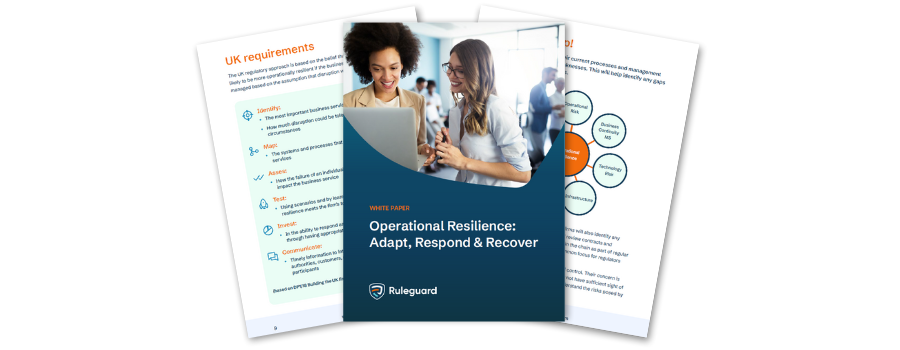%2024%20(1).png?width=116&height=125&name=Recognised%20CPD%20Badge%20(transparent)%2024%20(1).png)
Author: Priscilla Gaudoin - Head of Risk & Compliance - First published May 2022
Topics: Compliance, Bribery, Audit, Monitoring
Regions and Regulators: UK, FCA
- Being bribed
- Bribing foreign public officials
- Failing to prevent bribery
- Making facilitation payments
The Act defines Bribery as an act committed when a person gives or promises a financial, or other advantage, to another person in exchange for something else.
Despite the Act having been implemented over a decade ago, some still struggle to understand the full impact of the Act upon business activities such as:
- The UK’s Bribery Act 2010 impacts firms, their employees, agents and anyone working on behalf of a firm
- The Act has global reach. It applies to UK nationals, residents, companies (& partnerships) operating in the UK, regardless of where they were incorporated
- The Bribery Act 2010 created a new offence which can be committed by businesses. Namely, the failure to prevent associated person from committing bribery on their behalf. To comply, firms need to have adequate procedures in place.
Focus areas:
Compliance teams should focus attention on ensuring that:
- senior management maintain their understanding and awareness of the risks posed by bribery and corruption issues
- regular reviews and assessments completed of bribery & corruption risks to the business
- policies and procedures are maintained and implemented (including staff recruitment, vetting and remuneration) that cover bribery and corruption risks
- regular training and awareness programmes are provided to employees with adequate understanding of the risks associated with bribery and corruption
- implement adequate and risk-sensitive controls to mitigate the risks posed by third parties acting on behalf of the firm
There are 6 factors that help to embed anti-bribery & corruption policy within a firm.
This includes:
- Appropriate policy and procedures
- Senior management commitment
- Risk assessment
- Due diligence
- Communication
Why is it crucial that boards understand the UK Bribery Act?
Cases of bribery prosecuted in the UK may be limited in number and significance; however, the UK legislation is far-reaching. The most serious international corruption cases involve complex and often time consuming investigation. Such cases see the UK’s National Crime Agency (NCA) collaborating with international bodies to combat bribery.
It’s worth noting that experience points to bribes being disguised as fees (consulting or advice), hospitality, sponsorship or charitable donations. This reinforces the need to raise awareness of the risk and encourage employees to speak up when something doesn’t feel right. Having the right processes coupled with appropriate awareness training helps prevent bribery.
Weaknesses:
The FCA’s thematic review published in 2013 indicated that whilst firms had implemented policies and procedures, some lacked:
- the evidence to support and demonstrate the steps taken to prevent bribery
- effective oversight by senior management regarding the risks posed
- consistent (or absent) controls to assess, classify and record risks posed
- appropriate action or monitoring of identified risks
The above demonstrates that firms need more than a written policy. It’s about the ability to demonstrate that a firm has taken steps to prevent bribery.
Gaining assurance:
Tracking gifts and hospitality via spreadsheet may be fine for small firms, but as your firm grows maintenance and trend analysis become a challenge. Staff need to be trained to raise awareness, but they also need to understand the risk and repercussions for themselves and the business. It’s important that training doesn’t become a box ticking exercise, but one where the firm’s policy is embedded in everything that the firm does.
Management teams need to understand what risks are posed by acts of bribery and assurance that their controls are effective. This requires joined up thinking across a firm and any inter-group relationships. It also requires accurate management information and timely escalation of issues.
How can Ruleguard help?
Ruleguard is an industry-leading software platform designed to help regulated firms manage the burden of evidencing and monitoring compliance. It has a range of tools to help firms fulfil their obligations across the UK, Europe and APAC regions.
Ruleguard has the potential to revolutionise what your firm understands by compliance monitoring and deliver best-in-class governance, oversight and management of compliance risk. Find out more about our end-to-end platform.
Evidence and approvals are gathered in real time, with responsible individuals signing off attestations within a framework designed for your firm. Documentation reviews and updates are managed automatically. Key compliance workflows can be designed directly within the solution, ensuring that MI outputs are available which directly provide stakeholders with an up-to-the minute overview of compliance results.
White Papers:
Request a complimentary copy of our White Paper on Best Practice in Third Party Risk Management click here.
Webinars and Blogs:
Ruleguard hosts regular events on various regulatory topics. You can watch on-demand at your convenience:
- Risk Management: Tactics for Digital Assets
- Build a Winning Risk Strategy
- Elevate GRC and Manage Risks Effectively
Learn more about some of our solutions below. To view all solutions click here.
- Evidence Management and Task Lists - Gain a step change in evidence management and manage daily tasks in real-time, easily creating and assigning compliance activities to provide assurance – at all times.
- Gifts and Hospitality - Streamline the management of gifts and hospitality compliance, reinforcing your commitment to integrity and managing conflicts of interest.
- Financial Promotions - Navigate complex FCA rules and guidance with ease, ensuring your financial promotions are clear, fair, and not misleading. Ruleguard simplifies compliance across all media channels.
- Conflicts of Interest - Foster a culture of policy comprehension, transparent disclosure, timely resolution, and bulletproof audit trails with Ruleguard’s Conflicts of Interest software.
If you’d like to learn more about our solutions, please contact us for further information on:
0800 408 3845
hello@ruleguard.com

How Ruleguard can help
Discover how Ruleguard takes the effort out of tracking your regulatory obligations and monitoring compliance.
Speak to our RegTech Solutions Consultants to learn how Ruleguard can streamline and enhance all your regulatory requirements.
About the author
In a career spanning almost 30 years, Priscilla has worked as a consultant, CCO and MLRO providing regulatory oversight and advice to firms across the financial services industry. She is responsible for our thought leadership programme, writing regular articles and white papers, and hosting webinars on a variety of regulatory matters.
She is a Fellow of the International Compliance Association, a certified GRC practitioner, and a member of the Institute of Risk Management.

.png?width=300&height=175&name=webinar%20featured%20image%20April%2025%20-%20How%20can%20firms%20improve%20compliance%20monitoring%20v1%20large%20(5).png)



.png?width=300&height=175&name=webinar%20featured%20image%20April%2025%20-%20Avoid%20the%20pitfalls%20proactive%20compliance%20monitoring%20v1%20large%20(1).png)




